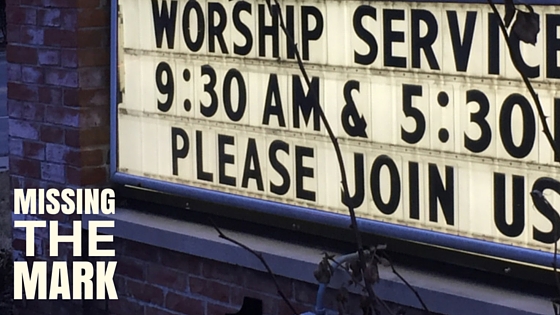
Only 1% of church leaders believe the Church is hitting the mark in discipleship.
Sharing the gospel. Making disciples. These topics are emphasized in Scripture, talked about from the pulpit, included in every church mission statement, used as the reason to fund the church’s budget, and written about in countless books, but do we dare ask the question: How are we actually doing at making disciples in the American church today?
According to a recent comprehensive, multi-phase research study conducted by the Barna Group, not so well! Only 1% of church leaders believe today’s churches are doing very well at making disciples. A sizable majority—six in ten (60%)—feels that churches are doing “not too well” at discipleship.
While church goers give their churches higher marks in emphasizing discipleship, the study goes on to reveal the following:
Despite believing their church emphasizes spiritual growth, engagement with the practices associated with discipleship leave much to be desired. For example, only 20 percent of Christian adults are involved in some sort of discipleship activity—and this includes a wide range of activities such as attending Sunday school or fellowship group, meeting with a spiritual mentor, studying the Bible with a group, or reading and discussing a Christian book with a group.
When asked how they want to improve in their discipleship programs, 27% of church leaders say they would like to “develop a more clearly articulated plan or approach to discipleship.”
In another Barna study published this past summer 2015 on the sharp rise in the U.S. post-Christian population, here are other somewhat alarming new statistics:
- Secularization is on the rise: Nearly two-fifths of the nation’s adult population (38%) now qualifies as post-Christian (secular in identity, beliefs and behavior).
- The unchurched are less open to the idea of church: People are becoming increasingly less responsive to churches’ efforts to connect with them.
- Churchgoing is no longer mainstream: Churchgoing is slowly but incontrovertibly losing its role as a normative part of American life. In the 1990s, roughly one out of every seven unchurched adults (14%) had never experienced regular church attendance. Today, that percentage has increased to nearly one quarter (25%). Church is becoming increasingly unfamiliar to millions of Americans, and yet the churchless are still largely comprised of de-churched adults.
In the midst of these sobering realities, God is positioning the ministry of Q Place to help churches grow strong in discipleship while having a strong impact on people who aren’t interested in coming to church. Church leaders across the country have seen the value of The 9 Arts of Spiritual Conversations curriculum; they like it and they’re using it to equip their people for meaningful conversations about God with people who believe differently.
In the second year of working with churches, we are also seeing success as they are slowly starting Q Places. Our work with these churches is confirming that the best way we can pass on our methodology is to walk alongside a handful of church and lay leaders at a time and go deep with them like Jesus did with his twelve disciples. As we journey with these churches, we will continue to widen our influence and increase our visibility at events such as VITAL so we can find the next round of church leaders to walk alongside.
Right now, we are seeing God actively at work through Q Place in five cities: Chicago, San Francisco, Denver, Seattle, and Detroit. We plan to continue going deeper in these places so that we can learn and begin to reproduce in other major cities. We believe God is calling us to a movement that starts with a defined and cultivated tribe whose mission it is to fulfill the Great Commission through the work of Q Place. We are committed to continuing to simplify our methodology so that every believer “on the ground” can be part of changing our culture of evangelism and discipleship.
We are grateful to have you on the journey with us!

Thanks for not simply pointing us again to the one assignment we’ve been given (making disciples), but also giving us:
— a clearer picture of our ho-hum performance and need for improvement,
— the changing & challenging context in which we find ourselves, and
— tools and hope for closing the gap.
Your ministry is a blessing.
Thanks for encouraging and equipping us to be more faithful and fruitful till He comes.